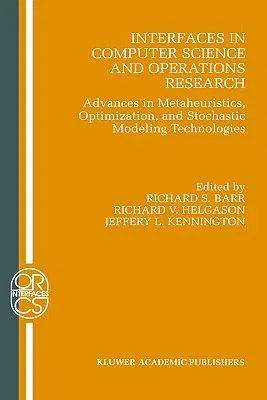Interfaces in Computer Science and Operations Research: Advances in Metaheuristics, Optimization, and Stochastic Modeling Technologies (1997)Hardcover - 1997, 31 December 1996

Qty
1
Turbo
Ships in 2 - 3 days
In Stock
Free Delivery
Cash on Delivery
15 Days
Free Returns
Secure Checkout

Part of Series
Operations Research/Computer Science Interfaces
Part of Series
Operations Research/Computer Science Interfaces Series
Part of Series
Operations Research Computer Science Interfaces
Print Length
442 pages
Language
English
Publisher
Springer
Date Published
31 Dec 1996
ISBN-10
0792398440
ISBN-13
9780792398448
Description
Product Details
Book Edition:
1997
Book Format:
Hardcover
Country of Origin:
US
Date Published:
31 December 1996
Dimensions:
23.39 x
15.6 x
2.54 cm
ISBN-10:
0792398440
ISBN-13:
9780792398448
Language:
English
Location:
New York, NY
Pages:
442
Publisher:
Series:
Weight:
816.47 gm